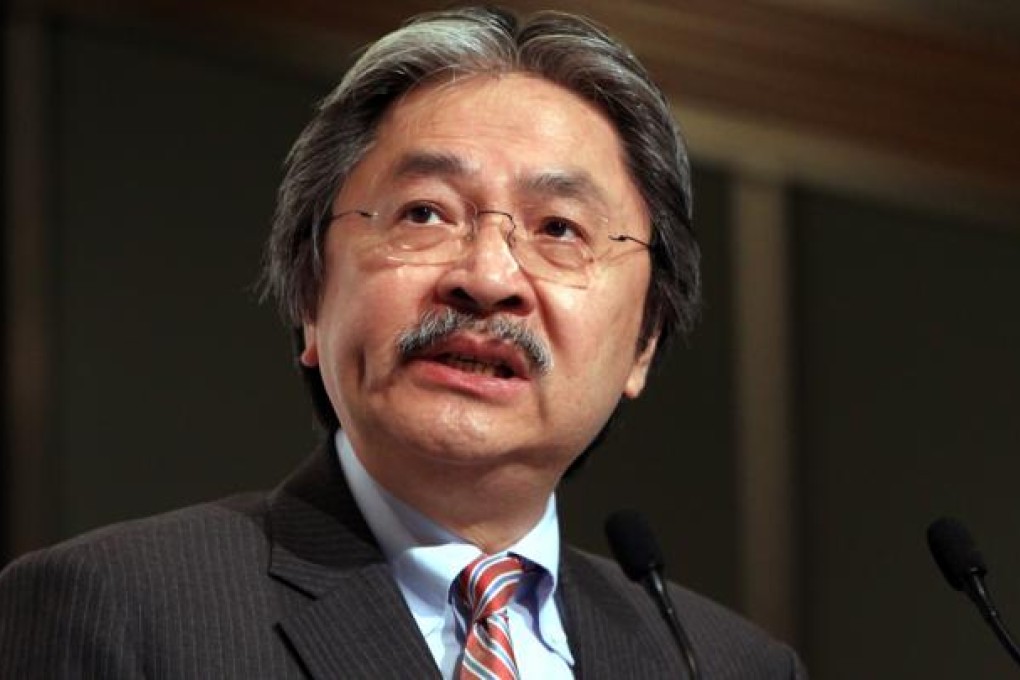
It says something about the magnet of Hong Kong assets for hot money that new measures to stem the flow into residential property immediately triggered concerns of a breakout elsewhere. Market experts warned that they will divert cash into commercial and industrial units, pushing up rents for businesses and eventually putting pressure on the property market again. However, the increasing flood of funds into the city left the government with little choice but to act on Chief Executive Leung Chun-ying's pledge to stabilise a market that is soaring beyond the reach of average first-home buyers.
Financial Secretary John Tsang Chun-wah announced a 15 per cent stamp duty on home purchases by non-locals and companies, and a rise of 5 percentage points to 10 to 20 per cent in an across-the-board special stamp duty aimed at speculators - now payable if a property is resold within three years, up from two previously. Tsang cited a 21 per cent rise in the prices of small and medium-sized flats since January. It has been fuelled recently by a third round of economic stimulus, which the US Federal Reserve hopes will revive American house prices, while Hong Kong and mainland authorities are trying to rein them in. It remains to be seen how effective the measures are in the long run. The market regards them as tough, with expectations that prices and sales volumes will fall 10 per cent.
The extension of the special duty reflects the government's hopes of improved global economic conditions within three years. The wait will not discourage speculators who anticipate big profits in return for patience.
The government faces criticism over the "protectionist" nature of measures that discriminate against non-locals including mainlanders, but they are proportionate to the difficulties facing local homebuyers because of external pressures. In any case they are targeted at well-heeled mainland residents and do not affect mainlanders with a Hong Kong spouse or who have acquired permanent residency.
Leung and Tsang have sent a welcome signal of determination to tackle the housing problem, which is top of a list of deep-rooted issues Leung has pledged to address - the others being poverty, the plight of the aged and the environment. But the measures are a palliative and not a remedy. In the long run, the government still needs to match supply of land for affordable flats to demand in the market. A good start would be to clarify conflicting data released earlier about how much land is available for residential development.